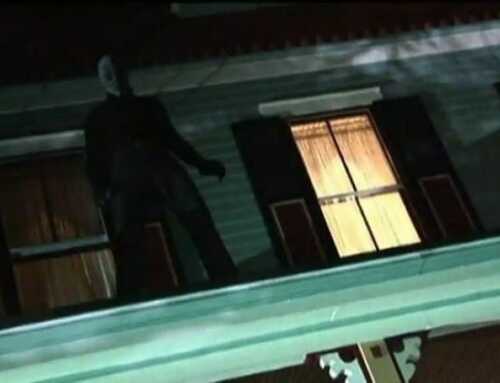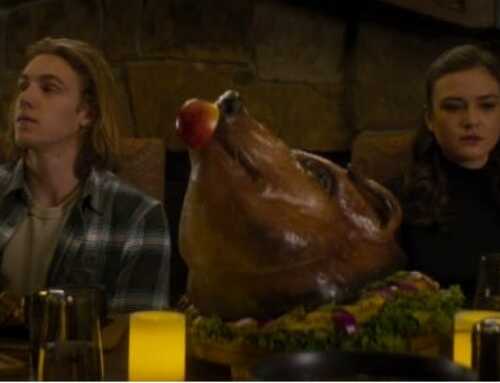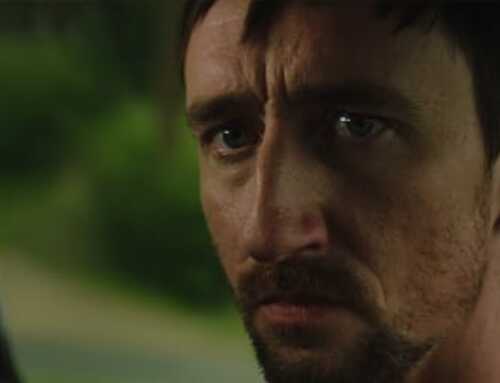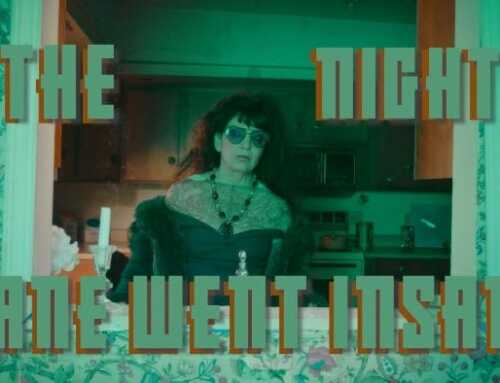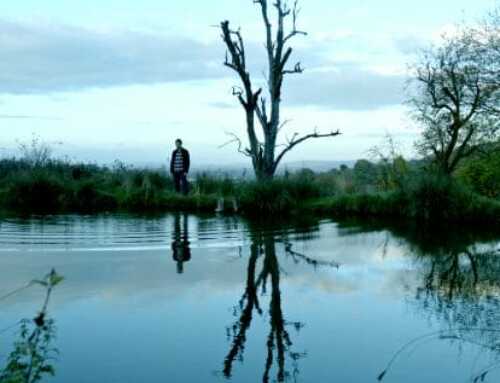Films that open with definitions lifted from the dictionary can put a viewer on their guard. Even the “Pulp” that opens Tarantino’s sophomore effort reads as pointless were it not immediately followed up with a Denny’s stick-up and bombastic credit sequence. Not to be outdone, David Williams’s debut feature Abject (aka This House is Made of Flesh and My Mouth is the Door) opens with not one but two Miriam Webster entries: “psychopath” and “psychotic.” (Would it have killed him to throw in “abject”?) Both words, derivatives of psych (“soul or mind”), portend the delusions and hallucinations to come. Buzzwords within the body of these definitions are underscored by heavy-handed highlighting (e.g. words like “delusions” and “hallucinations”).
It’s been a year since the crushing loss of an unnamed husband and wife’s daughter. In a final effort to save their marriage, their new-age therapist not only “prescribes” a week-long getaway at an isolated, modernist mansion in the woods, but supplies them with pills he calls psychedelics without further specification. Despite Husband’s (Joe Gallagher) excessive penchant for alcohol, he refuses the pills. Meanwhile, Wife (as she’s referred to in the credits and played by the eminently watchable Helena Simon), will try anything. Huge and idyllic, the house has also suffers from the manic ministrations of an interior designer with an affinity for fake Warhols. William’s attempts to imbue the place with a living dread are comprised of sequential flashes featuring empty rooms—now to the ring of the phone, now to a Law and Order thump. Similar passages follow. The same rooms and the same angles that frequently turn the screen into a CB2 catalog.
On paper, the premise of psychedelic psychiatry couldn’t hold more promise. Incidentally, it’s time to acknowledge the “psych” prefix present in the word psychedelic (which is pretty trippy). As the psychiatric field makes rapid advances in its focus on Ketamine, LSD, and shrooms, it was only a matter of time before a film rendered one of such treatments a pandora’s box of psychoses. Wife dutifully takes the pills; Husband descends into an alcoholic stupor courtesy of the fully-stocked bar—bad planning on the part of a therapist who’s trying to help fix a marriage marred by alcoholism. Hallucinations follow, but whose are they? Wife sees monsters, Husband wraps Wife in garbage bags with duct tape and buries her only to find she’s still in the kitchen where he just strangled her. Wife hears things Husband can’t. Husband doesn’t quite believe her, because Husband hears his own things.
Psychedelic therapy lowers conversational inhibitions and accesses pathways in the brain otherwise closed off during traditional talk therapy, but if any couple could fuck this up on every single level, it’s Husband and Wife. The combination of psychedelics on one end and hard drinking on the other devolves into a litany of Who’s Afraid of Virginia Woolf recriminations, accusations, raised voices, and flying fists. As admissions of infidelity and limp-dick shaming eclipse the horror narrative, the viewer may notice how calm Wife remains. There has to be something more than just a pill that creates these visions of furry monsters, an Overlook Hotel malaise of evil, and maybe even a dead daughter (Isn’t a child’s singing on the soundtrack always a cue that a kid’s either dead, evil, or both?). Husband fades into a dipsomaniacal stupor as he succumbs to the terror of a woman he can no longer fathom. Unfortunately, neither can the viewer, who’ll find themselves drawing one or two speculative conclusions of their own.
Abject’s saving grace is that Williams knows how to make a picture look good. As writer, he has big ideas but does not communicate them with any efficacy. Now it’s time for him to corral his ideas into cogency, incorporate them into his faultless compositions, and scare the hell out of all of us.
5 out of 10
| Abject | ||
| RATING: | NR |
Abject - Official Trailer
|
| Runtime: | 1 Hr. 15 Mins. | |
| Directed By: | ||
| Written By: | ||


